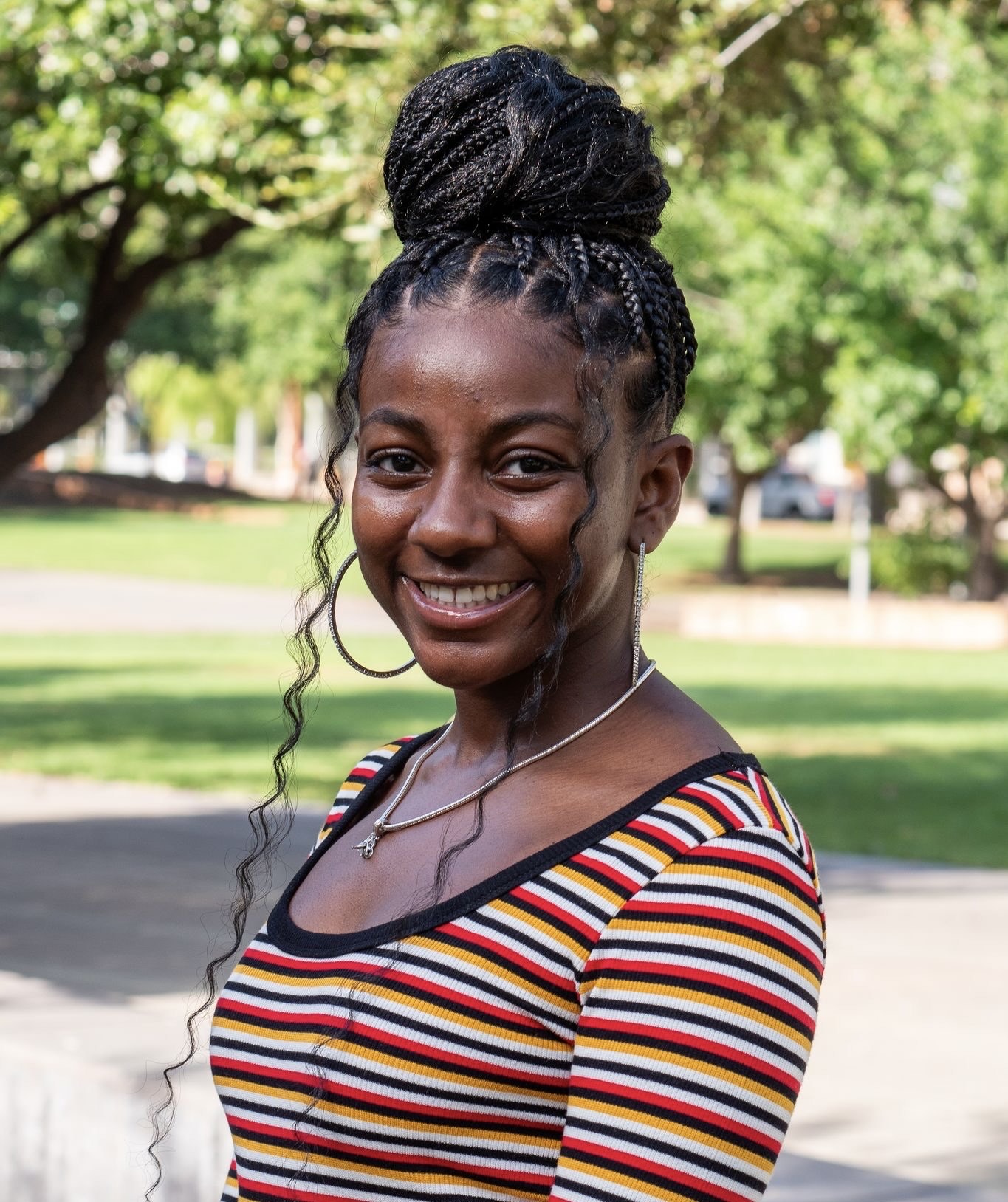Creating Safe Spaces: A Researcher’s Journey for Improving Black Maternal Health
For Kadeeja Murrell, research has never been just academic—it’s personal, purposeful, and deeply rooted in community. From early interests in cardiology to her current work developing tools for assessing social safety in Black maternal healthcare, her journey reflects both scholarly curiosity and a commitment to systemic change in communities across the country.
A Passion Sparked by the Heart
 Murrell’s path into research began during her undergraduate program at Michigan State University where she worked in the Exercise and Cardiac Health Outcomes Lab looking at the effects of exercise on brachial artery flow mediated dilation.
Murrell’s path into research began during her undergraduate program at Michigan State University where she worked in the Exercise and Cardiac Health Outcomes Lab looking at the effects of exercise on brachial artery flow mediated dilation.
Then, during her master’s program in Exercise Physiology at Central Michigan University, a class in cardiology captured her imagination. “The heart is just so interesting—it might be my favorite organ,” she reflected.
As her master’s program went on, and she took classes on other body systems, she found that everything she learned kept her coming back to how the heart would be impacted, increasing her curiosity to learn more.
“It was just so fascinating to me. I felt like an actual scientist,” Murrell said.
Her interest in cardiology evolved into wanting to understand why Black women were not participating in cardiac rehabilitation programs at the same rate as other groups.
For her master’s project, she conducted a literature review that focused on barriers preventing Black women from attending cardiac rehab and possible interventions to improve participation. The project culminated in a research paper, which she later presented at multiple conferences.
Finding a Research Home at Arizona State University
During her literature review, Murrell came across an article by a professor at Arizona State University (ASU) who was engaged in research concerning Black health. The article synthesized everything that she was doing at the time and it inspired her to reach out to the professor to learn more about his work. For Murrell, it was a reassuring discovery because she had been considering a PhD but wanted to be sure she would have institutional support.
“It’s hard to find universities and professors working with this population,” she explained. “One of my biggest fears was going somewhere and getting judged for wanting to do research on Black people.”
Finding the article that led her to meeting with the ASU professor, who later became her first-year advisor, reinforced her decision to continue researching health disparities, particularly those affecting Black women. “I felt like my research would be welcome there,” Murrell said. “This is a sign from God, this is my stepping-stone, this is what I need to do.”
Transitioning to Maternal Health
Though her master’s work focused on cardiac rehab, her attention began shifting toward maternal health once she entered her PhD program. “I remember coming across a lot of articles on Black maternal health while writing my literature review,” she said. “I stashed them away, thinking it was interesting but not relevant at the time.”
Encouraged by her advisor to narrow her research focus, she revisited those articles. What followed was a natural pivot toward Black maternal healthcare—a topic that not only resonated with her academically but also personally.
“Black women are dying at disproportionate rates during and after childbirth,” she said. “To me, that’s scary, especially as somebody in the community. My mom’s a Black woman, my best friends are Black women. It’s a problem that is important to me and I’m hoping that we can make a change.”
Murrell said that maternal health has improved this year from last year, but Black women are still dying at disproportionate rates.
“For Black women, it’s just kind of remaining the same,” Murrell said. “Something needs to change.”
Developing a Tool for Change: Social Safety in Maternal Care
Now entering her fourth year of doctoral studies, her dissertation focuses on creating a scale to measure social safety—the perception of safety and trust—in maternal healthcare environments for Black women.
She began with a seed grant study, conducting interviews with 25 Black women who had given birth between 2019 and 2024. “I asked them what made them feel safe in hospitals, what didn’t, and how things could be improved,” she said. From this qualitative data, she identified eight core themes, which now serve as the foundational domains for her survey instrument.
Her goal is to complete a Delphi process with a panel of experts, who will help refine the questions and ensure the scale is accurate and relevant. Once validated, she envisions the instrument being used by social workers or third-party administrators in hospitals to assess patients’ mental and emotional well-being in real time.
“If someone feels like they have no autonomy, then the hospital staff can intervene immediately to improve that experience,” Murrell said.
Beyond individual care, she hopes the tool can offer hospitals broader accountability. “If several women at a hospital identify the same concerns, then administrators can address systemic problems.”
Representation and Trust in Research
Murrell said that building trust with Black participants in research can be a challenge due to historical abuses. Though that is why she feels it’s important for her to be pursuing this work and why representation is so important in research.
“I did all 25 interviews and they all saw my face, they know that I am a black woman, they know that I am trying to help,” Murrell said. “It looks different when someone from the community is doing the work. It feels more genuine.”
Looking Ahead: Beyond Academia
While Murrell initially envisioned a tenure-track academic career, her aspirations have evolved to public health roles at local health and human services agencies, ideally in states with high maternal mortality rates for Black women, such as California, Louisiana, Florida, or even her home state of Michigan.
“I think I can make a more of a difference through government work because it would directly impact people,” she said.
Murrell is considering a doula certification after graduation, allowing her to engage more directly with patients while simultaneously informing her research. “Being in the field will help me understand what Black women truly need during pregnancy and birth,” she said.
As Murrell continues toward her 2026 graduation goal, she is motivated by creating lasting change. Though she acknowledges that meaningful change in maternal health won’t happen overnight, she feels confident she will make a difference.
“The evidence is out there. Black women are not doing well during pregnancy and childbirth,” she said. “This work—my work—is just one way to try and change that.”

